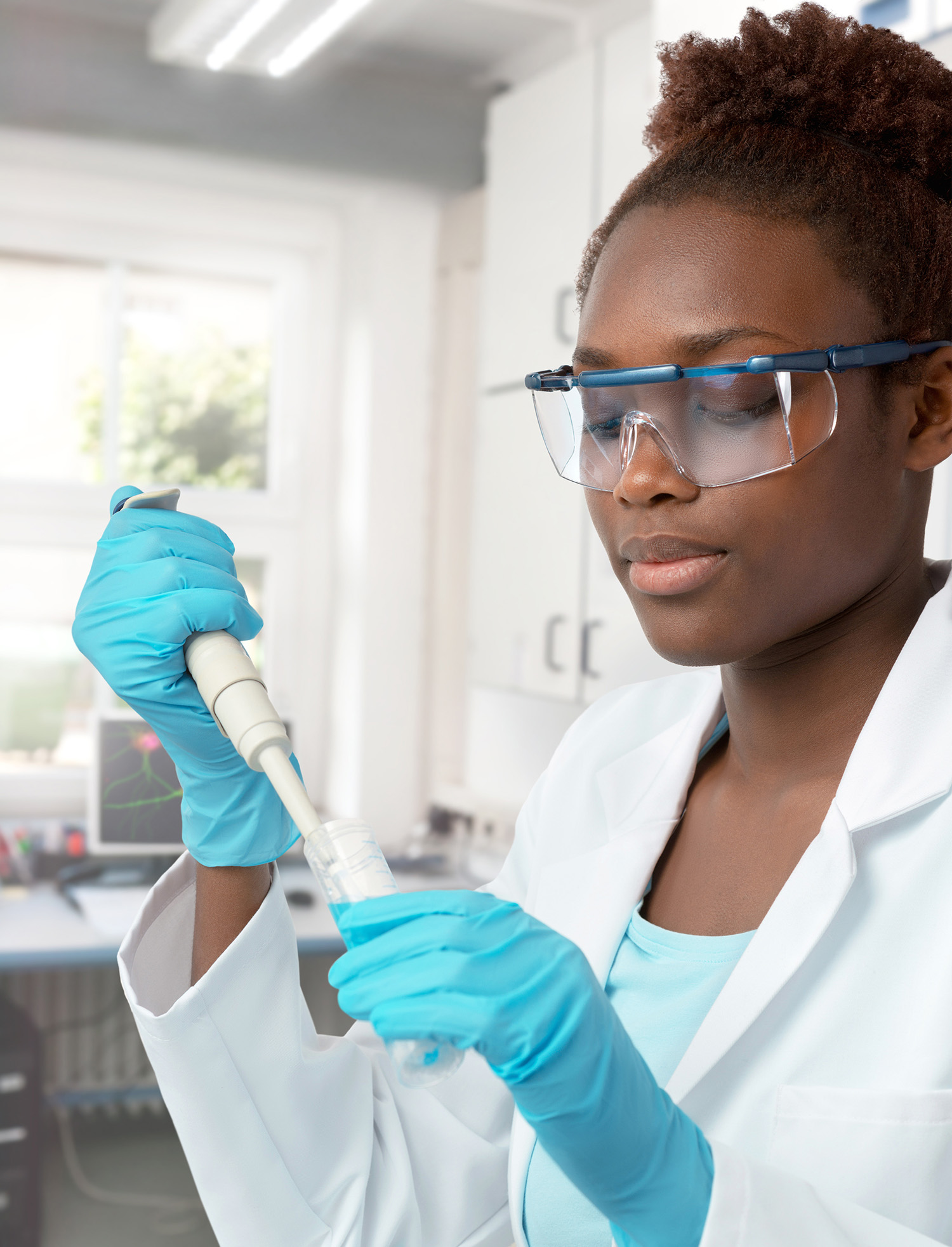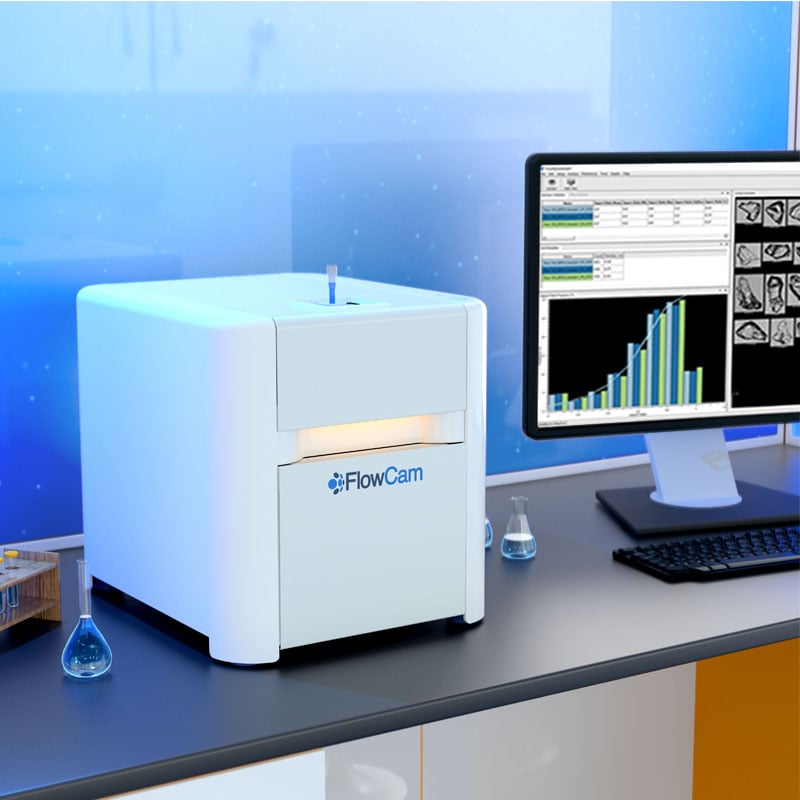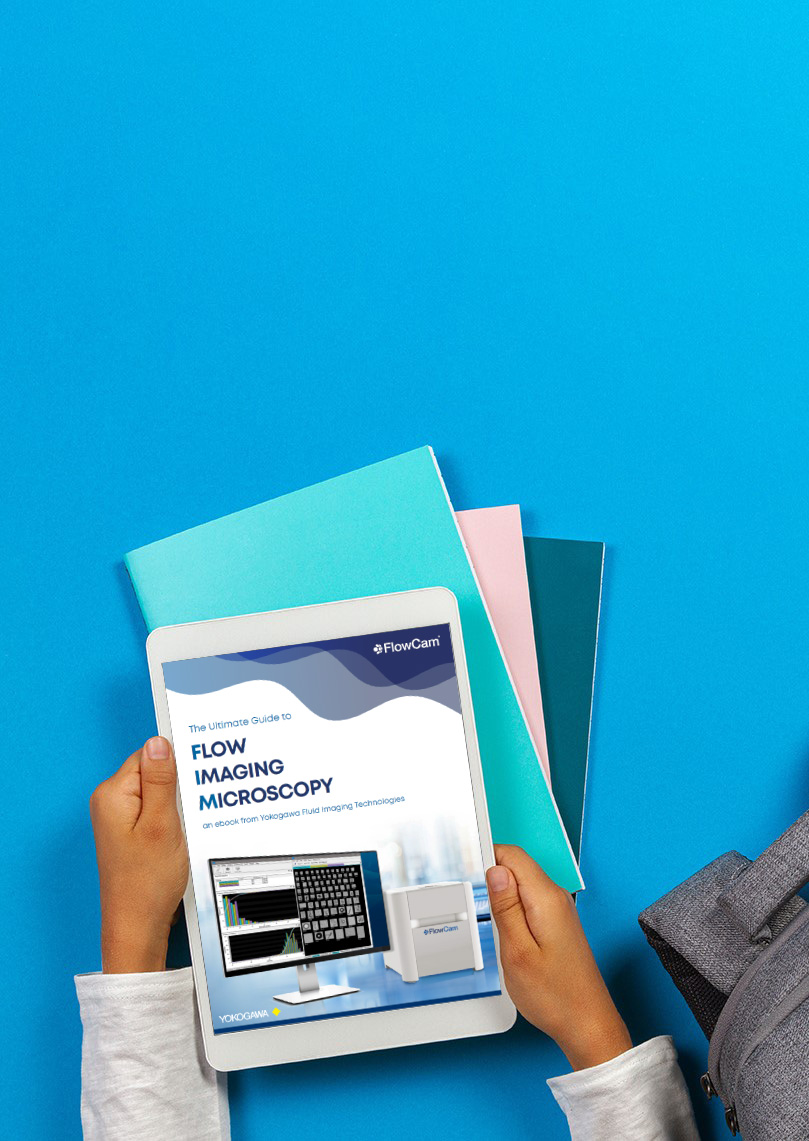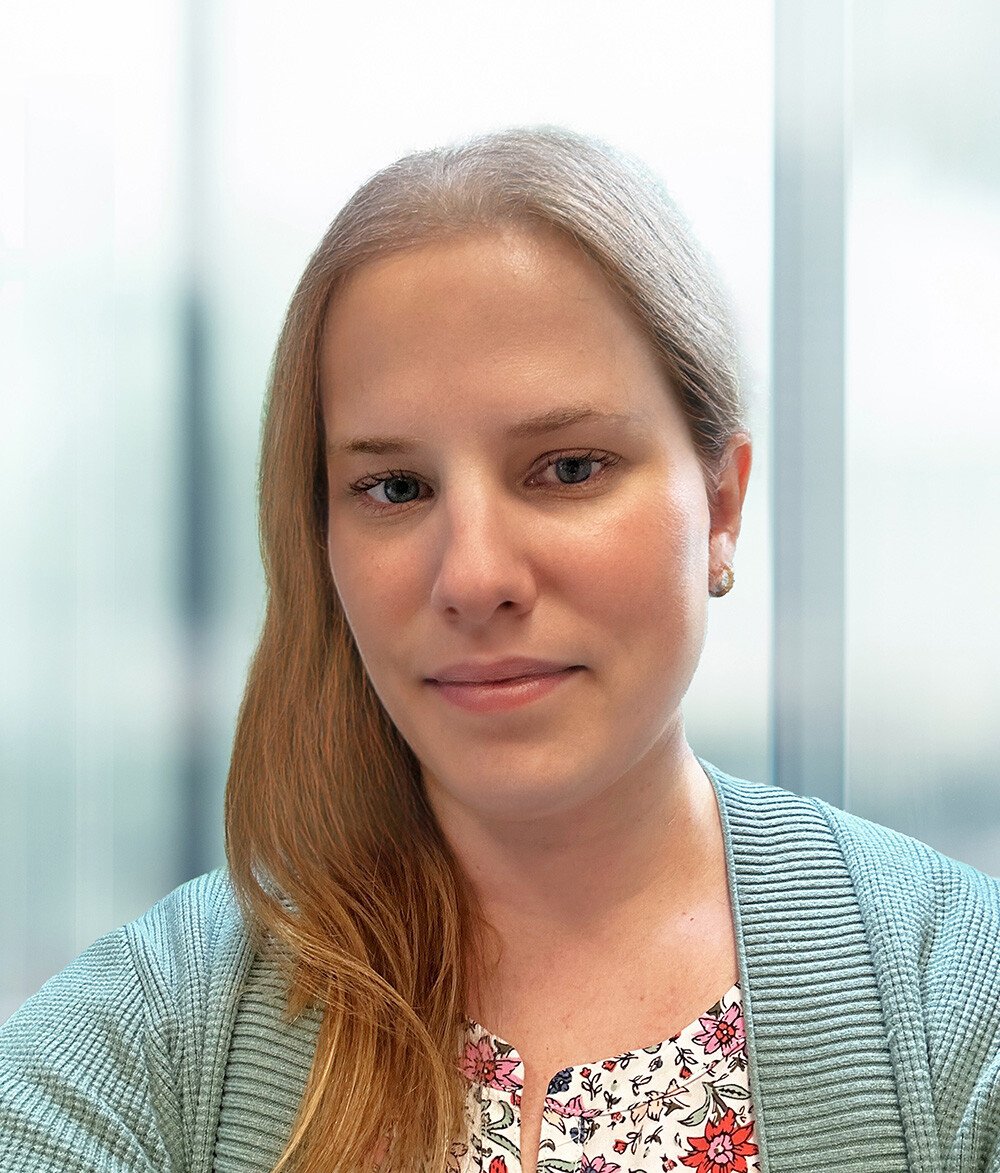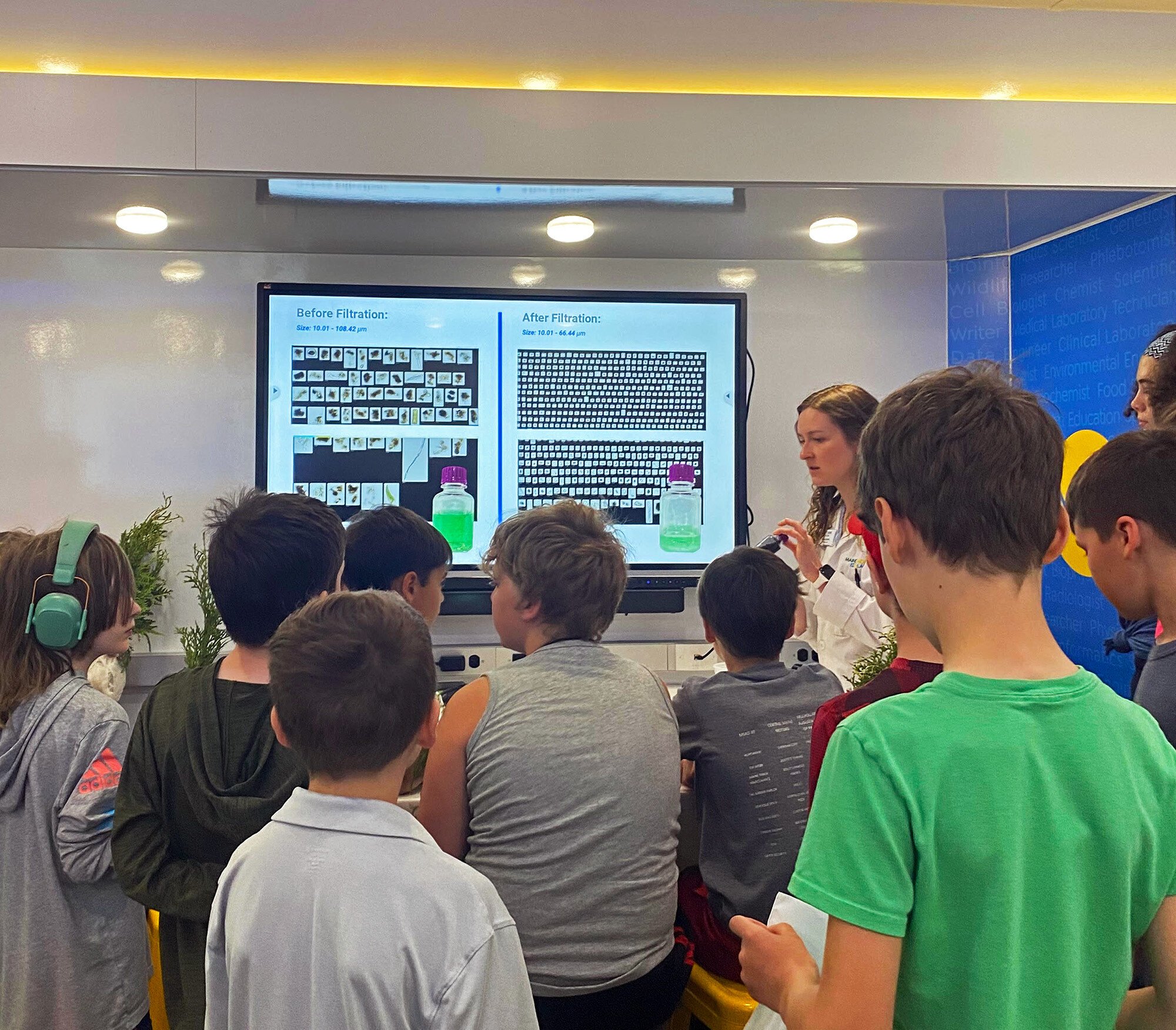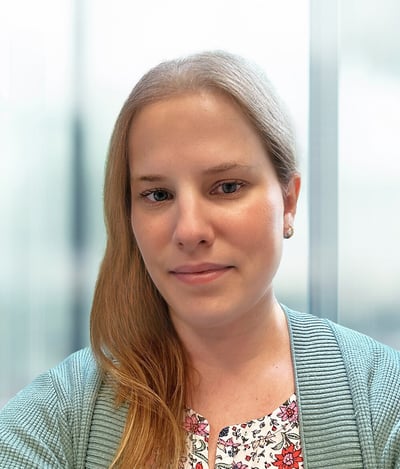This spring, Maine middle schoolers are learning about bioscience in new ways - through a fully-equipped laboratory on wheels traveling across the state. The Maine Mobile BIOLAB, in the form of a traveling trailer, is a new offering from Educate Maine bringing scientific tools and techniques directly to rural schools throughout Maine. Students are gaining hands-on exposure to lessons and technology their schools have not previously provided, along with an introduction to various STEM careers. The curriculum is designed around real-world job opportunities in Maine, where life science companies are seeing unprecedented growth.
The mobile lab includes a FlowCam station, where educators use local water samples to give the students a glimpse into the microscopic life existing in our water bodies. Our FlowCam team had the opportunity to catch up recently with the lab's director, Kate Howell, and the lab's educators: Heather Carlisle, and Anna Stehlik. Below you can find excerpts of our conversation and learn about the first few months aboard the Maine Mobile BIOLAB.
How did the idea of the mobile lab evolve?
Kate Howell: The Maine Mobile BIOLAB idea originally came from a group of teachers who expressed how incredible it would be if rural communities in Maine didn't have to travel to Portland or other far-off sites to experience a science lab. We asked the question, "What if we could really do that - what would it look like?" From there we began collaboration with the Roux Institute, the Bioscience Association of Maine, and other local industry members to develop this idea for the BIOLAB.

Aside from bridging long distances, what do you see as the other goals of the BIOLAB?
Kate: Maine schools often lack resources and equipment, especially in rural and under-resourced communities. We want to make an impact and spread the wealth of resources here in Maine while allowing these students to get a really cool, hands-on experience that is easily accessible.
My role at Educate Maine is to bridge the gap between learners and careers - and we want to do that earlier - not just in high school and college. We focus on middle school students because this is a critical age when science identity is formed. We want to ignite their curiosity at this crucial age and build that science identity so that students start to think: "I can do science, I could be a scientist!"
How did the idea evolve to include FlowCam on the BIOLAB?
Kate: We were eager to find ways to elevate opportunities for students and expose them to high-end technical equipment they might encounter in their future scientific careers. As we began thinking about what that could look like, we turned to our industry partners asking about what equipment they were using. And then after talking to you, we came to understand there might be an opportunity to have this incredible piece of equipment travel with us all over the state! And it's been great - the students love it.
Tell us about how the first semester went.
Kate: The first few months have been amazing. Under the guidance of our two experienced educators, Heather and Anna, we've been to 12 schools so far and reached just under 3000 students - nearly doubling our initial target. We've also participated in community and camp events.
Our educators have felt so welcomed by the communities we visit - they almost feel like local celebrities. We did this for the science and the schools, but we have found that we're becoming part of the communities when we're there.
You're on each campus for one week - what does a typical week look like?
Kate: Each week starts with a pre-visit with our education team and our coordinator to talk through logistics and start building the schedule with the teachers. The teachers will frequently say, "We've been working on (body systems, for example). Which lesson would be good for us?" We can help direct them to relevant lessons that might more easily connect with topics the students are learning in that moment. Our team arrives on Monday to set up, and then classes happen all day on Tuesday, Wednesday, and Thursday, with a half day on Friday.
How do the kids react when they first set foot in the lab?
Kate: Seeing kids in the lab for the first time was absolutely hands down, the best. So much work went into building the lab and we spent a lot of time second-guessing various small decisions - it's so easy to get lost in those little details. And then you bring the lab to a school and see students in it for the first time, and they're so excited - saying "this is amazing!" - and suddenly those operational details seemed unimportant.

Anna Stehlik: A lot of students are fascinated with just how big the lab is. And when we're finishing up their activity, we often run a water sample through the FlowCam and the different images start to pop up on the screen. It's mind-boggling for them to see everything that's in there. Sometimes you can see the lightbulbs go off for them, or sometimes they'll react with disgust!
Kate: I've heard students say things like "This is like the stuff you see on TV, right?" Because they don't have other exposure to equipment of this caliber. I think knowing that FlowCam is used at universities and in research centers and businesses is very exciting and unexpected for the students. They're just having so much fun with it.
"We're so grateful to have FlowCam in the lab - to help the students get excited about science and see real state-of-the-art equipment."
I understand you've primarily been running natural water samples on FlowCam - where do you usually get your samples?
Anna: The first time we did a local water sample we were at a school - we got a water sample from the reservoir known to be the source of the town's drinking water. We ran it through FlowCam and it was so interesting to see what was there - especially for the teachers and students, since there had been discussions about whether the reservoir is a good water source for the town and the local Native American community. We've also run pond water, marine water, and brackish water - comparing the different types of water samples.
Heather Carlisle: So far we've been using FlowCam in an exploratory way - talking to students about life in a drop of water. One day we were lucky to work with [FlowCam customer and Assistant Professor of Marine Science at Maine Maritime Academy] Steven Baer. He taught us more about how to use FlowCam and about the taxonomy of the organisms in the samples we've been running. It was great having him come on board because he gave us some language to articulate just how small these creatures are and how vital they are to our aquatic ecosystems.
Anna: At one school we ran a drinking water sample alongside a sample from the science lab's nonpotable water. It was cool seeing the difference between treated and untreated water. We also conducted a design engineering challenge where the students built a water filter. They begin by putting dust or dirt, sometimes vinegar or food coloring, in a sample of clean water, and then use their homemade filter. Once they've filtered the water they test the pH and turbidity. At the end, many students will look at their "clean" water sample and think it looks great - "I would drink it!". Then we say, "Would you really?" and we put it through FlowCam to show them what's still in there that's not visible to the naked eye.
 Heather: It's been interesting to show them that, yes, your water looks clean, but when you compare that to a tap water sample, you can really see the difference. So if we say, "Don't drink the water from the science lab" - please don't drink the water from the science lab!
Heather: It's been interesting to show them that, yes, your water looks clean, but when you compare that to a tap water sample, you can really see the difference. So if we say, "Don't drink the water from the science lab" - please don't drink the water from the science lab!
We also talk a lot about maintaining a balance in any ecosystem and how important that is. For example, cyanobacteria is the basis of the food chain. When the population gets out of control there are negative effects, but you still need the cyanobacteria to be there - so how do we keep our ecosystems in balance?
What are your plans for the upcoming school year?
Anna: We want to go deeper and teach the students about the different organisms they see using FlowCam, what it means for the environment, and how climate change might play a role in what they're seeing.
Heather: We're writing a new lesson for the upcoming school year that showcases FlowCam's capabilities and how it's used in real-world situations in Maine. We've used the example of 7 Lakes Alliance and collaborated with that organization to write a lesson for students to practice being water scientists. We're going to have students run preserved lake water samples and try to identify cyanobacteria. Then we'll talk about PCR testing and have them run the gel electrophoresis. We'll set up the samples to have half of them be toxin-producing, even though all the lakes tested so far have been non-toxic. We're working closely with 7 Lakes Alliance to ensure we're being true to what is done in the field.
Kate: We will be visiting 29 schools this coming year - we had to make some difficult decisions since we had more than 50 applications. We want to ensure that we're reaching all parts of the state, and giving students from all over Maine this opportunity.
It takes a lot of money to get to all of these schools. And we also know that we wouldn't be able to have the same impact without the amazing equipment on board. Using FlowCam at no cost is very powerful. It's taken the lab to a whole new level.
When we saw FlowCam in action we knew - "We have to have one of these!"
 Kate Howell
Kate Howell
Director, Workforce Partnerships, Educate Maine
Kate has worked with Educate Maine since 2020 to strengthen the alignment between education and business through strategic partnerships and experiential learning programs.
 Anna Stehlik
Anna Stehlik
STEM Educator, Maine Mobile BIOLAB, Educate Maine
Anna aims to bring environmental awareness and knowledge of sustainability to the public through environmental education programs that communicate the importance of conservation and ecological concerns.
 Heather Carlisle
Heather Carlisle
STEM Educator, Maine Mobile BIOLAB, Educate Maine
As a scientist and educator with nearly 12 years of laboratory experience, Heather is passionate about creating student-focused and hands-on learning experiences that connect science to real-world settings.
To learn more about Educate Maine's mission, check out their website. And make sure to subscribe to our newsletter to stay on top of what's happening with FlowCam!


